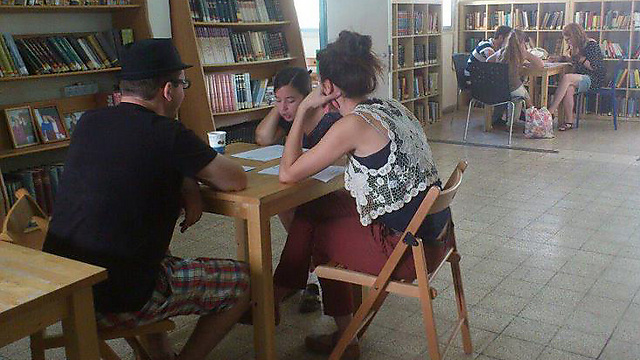
The ‘Secular’ Forum’s confusion
Op-ed: There is no greater lie than identifying the Israeli secular public as a whole with assimilation. The vast majority of the secular public in Israel is proud of being Jewish and feels connected to it in 50 different shades of secular Judaism.
When I emerged from the television debate I held with Ram Fruman, the head of the “Secular” Forum, Ram proudly said to me, “I’m a Hellenist.”
Assimilation is ubiquitous in the American Jewish community, but here in Israel it is almost nonexistent because our solid Jewish majority and the Hebrew language overshadow it. But the truth is that Israel-made assimilation does indeed exist, and right now the “Secular” Forum is among its chief proponents.
At the same time, there is no greater lie than identifying the Israeli secular public as a whole with assimilation. This writer is secular and the vast majority of the secular public in Israel is proud of being Jewish and feels connected to it in 50 different shades of secular Judaism.
The chart doesn’t lie: A survey conducted by the Bina Institute in 2014 found that only 13 percent of the Jewish public felt their Israeli identity took precedence over their Jewish one, a solid majority of 60 percent saw no difference between the two identities, and 27 percent felt their Jewish identity took priority.
In the United States, anyone who wishes to assimilate disappears from the Jewish people without any complaints against him or demands on his part for recognition of his special status as a proud assimilationist. In Israel, however, the proponents of assimilation express the desire to be recognized as a stream of Judaism and an ideological movement. It is, however, an ideological movement without an idea, since its entire essence is contempt for and opposition to Judaism, and consequently also Zionism, the national movement of the Jewish people.
One of the more groundless claims of the members of the “Secular” Forum is that Zionism is a secular movement. Let’s address this argument for a moment. There were three central thinkers among the earliest Zionists: Hess, Kalischer and Alkalai.
Let us start with the “secular” one, Moses Hess, who started the first letter in his book Rome and Jerusalem (1861) with the following words: “After an estrangement of 20 years, I am back with my people. I have come to be one of them again, to participate in the celebration of the holy days, to share the memories and hopes of the nation… a thought which I believed to be buried in my heart has been revived in me anew. It is the thought of my nationality which is inseparably connected with the ancestral heritage and the memories of the Holy Land, the Eternal City, the birthplace of the divine unity of life, as well as the hope in the brotherhood of men.”
After these introductory words to his book, I very much doubt Hess would have been inducted into the ranks of the “Secular” Forum.
Let’s continue: In 1840, well-known author Samuel Leib Zitron wrote of Rabbi Judah Alkalai of the Balkans: “Based on his views, he can be considered the pioneer of modern political Zionism.” Alkalai was the first to declare, in his 1845 book, Minchat Yehudah, “We must not despair, but rather courageously endeavor with great strength to revive our language and reestablish it to make it the essence...”
Rabbi Zvi Hirsch Kalischer of Poland pioneered the idea of agricultural development in the Land of Israel and sought to terminate its inhabitants’ dependence on charity. He was the first to appeal to the Rothschild family and to Moses Montefiore to purchase land, and 24 years before the famous Katowice Conference, he convened the first conference that focused on the settlement of the Land of Israel.
Thirty-seven years later, the undisputed leader of the Zionist Movement would stand before the Basel Conference Hall and declare in his first speech at the First Zionist Congress that “Zionism is our return to Judaism even before our return to the land of the Jews.”
Zionism and Judaism are inextricably intertwined and it is impossible to separate them. Zionism is not a religious movement and is not a secular movement. Zionism is a Jewish movement, and those who wish to assimilate and become Hellenists in Israel, New York or Brooklyn, should go for it. Just don’t try to convince us that what you're doing is part of an ideological movement, to say nothing of Zionism.
Finally, I would like to enlist the words of the legendary Palmach commander and one of the greatest Zionist leaders, who was an inveterate secular Jew, Yigal Allon, for this column. He wrote: “Among the Jews there have always been groups of people whose past weighs them down like a humpback and they are the first to perform plastic surgery on their national-spiritual profile to adapt it to the latest cosmopolitan fashion… But only those who have the courage to be themselves make the greatest contribution to universal culture.”
Amichai Chikli, head of the Tavor Leadership Academy, holds an MA in diplomacy and security studies from Tel Aviv University and a BA in Middle Eastern studies from the University of Haifa. He served as a company commander in one of the IDF’s elite units, with the rank of major.











